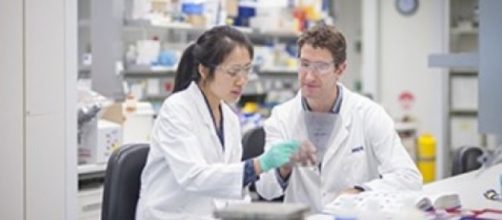A research team at the Wake Forest Baptist Medical Center have demonstrated for the first time that the radiation that exists everywhere in outer space could increase the risk of Leukemia in humans. The researchers performed the study on mice that were injected with specific human Stem Cells, and they conclude that going to mars without proper precaution could cause Leukemia. The research was published in Leukemia under the title ''In vitro and in vivo assessment of direct effects of simulated solar and galactic Cosmic Radiation on human hematopoietic stem/progenitor cells.''
Going to Mars
A journey to Mars is not an easy thing, astronauts should be trained to deal with a lot of problems and a lot of risks, from a zero gravity environment, to adapting to a three-year journey in a closed spaceship, but Leukemia was certainly not one of the dangers that astronauts were training to face.
Now, a research team has shown that the chances of leukemia up there are very high. They also show that the risk could be increased in two different ways. Meanwhile, the team is trying to develop a medication that could prevent the risk of leukemia in outer space.
Cosmic radiation
The distance between earth and mars is about 140 million miles, which would take three years to be reached by our fastest spaceship so far. The harmful radiation doesn't just exist on the surface of mars, it also exists along the way. Researchers have studied the effect of high energy particles that are emitted from other stars and galaxies on human cells, especially stem cells. These cells are essential for various functions in the human body.
By injecting these stem cells on mice, the researchers tested the effect of such radiation and found that the radiation has catastrophic effects on the body, hindering the body from producing enough red blood cells and extremely weakening the immune system, which could lead to many diseases, including cancer, especially leukemia. This happens through mutations caused by radiation in genes related to stem cells. The researchers are working on a protection against radiation, but it is still a work in progress.

